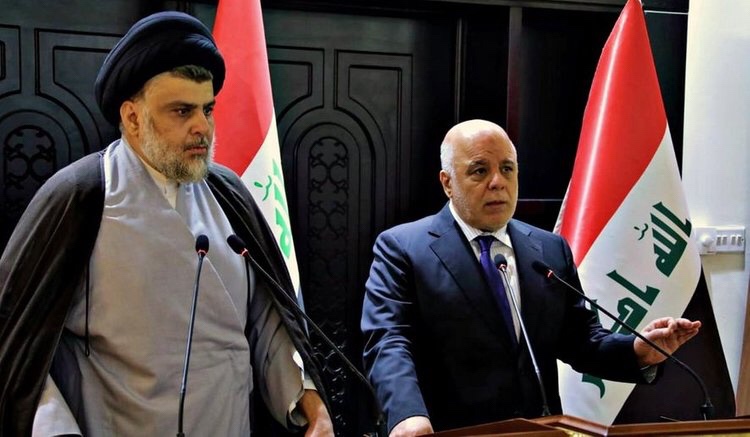 Muqtada al-Sadr, Shia cleric, calls U.S. an 'invader country' in Iraq
Muqtada al-Sadr, Shia cleric, calls U.S. an 'invader country' in IraqBy Carlo Muñoz
Muqtada al-Sadr, the firebrand Shia cleric and head of Iraq’s newly elected ruling class, vowed on Wednesday to deny the U.S. any role in the country’s national security efforts, casting further doubt on the future of the American mission there.
“The U.S. is an invader country; we do not allow it to interfere at all,” Mr. Sadr said in a statement Wednesday, in response to queries regarding how his political coalition dubbed the Sairoon alliance plans to form a new Iraqi government, in the wake of the Islamic State or ISIS’s defeat in the country.
The proclamation comes at a tenuous time for U.S. military brass at the Pentagon, who are piecing together a plan to reshape the current Iraq mission — focused on dismantling the Islamic State terror group in the country — into a longer-term, more advisory and more multinational campaign akin to current American-led operations in Afghanistan.
The Trump administration is believed to have opened a communications backchannel to Mr. Sadr and his top aides to probe the cleric’s position toward the prospect of a long-term U.S. military presence.
Mr. Sadr’s political bloc captured over 40 percent of the parliamentary vote during last week’s elections, with the the Iranian-backed Fatah alliance coming in second place, according to voting results. Iraqi Prime Minister Haider al-Abadi’s Victory alliance came in third place, forcing Mr. Abadi’s party to form a ruling coalition with Tehran and the Sadrists.
The Shia cleric has repeatedly called for the withdrawal of U.S. troops from Iraq, threatening those troops could become targets of Shia paramilitary groups, such as the Madhi Army.
Prior to the rise of ISIS in Iraq, Mr. Sadr’s Mahdi Army and other Sadrists battled U.S. and coalition forces in Najaf and Sadr City during some of the worst fighting of the American occupation of the country in mid-2000.
While Mr. Sadr saved his harshest rhetoric on Wednesday for Washington’s continued presence in Iraq, he took a more conciliatory tone toward concerns the country may fall further under Iran’s sway once his coalition takes power.
“Iran is a neighboring country that fears for its interest and we hope it will not interfere in Iraqi affairs,” he said, according to the statement first reported by Turkish news outlet Anadolu Agency.
Mr. Sadr has gone to great lengths to distance himself from Iran and tried to head off a narrative that he’d do Tehran’s bidding once in power. But concerns remain in Washington and Baghdad that his opportunistic political strategy to build his power base in Iraq could lead to closer ties to Tehran.
The Washington Times Comment Policy
The Washington Times welcomes your comments on Spot.im, our third-party provider. Please read our Comment Policy before commenting.
No comments:
Post a Comment